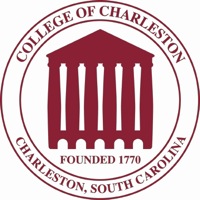Below is a summary of the abstract you submitted. Presenting author(s) is shown in bold.
If any changes need to be made, you can modify the abstract or change the authors.
You can also download a .docx version of this abstract.
If there are any problems, please email Dan at dar78@pitt.edu and he'll take care of them!
This abstract was last modified on April 28, 2016 at 10:59 a.m..

The HHMI SEA-PHAGES at the College of Charleston is a yearlong research-based course that allows first year students to work with faculty, learn proper laboratory techniques, and understand the process of research. This lab course is connected to a Learning Community that combines our Introduction to Molecular and Cellular Biology course with either Academic Writing or Calculus. The theme of the Learning Communities is viral biology and viral outbreaks. Supported by the First Year Experience program and the South Carolina Alliance for Minority Participation (SCAMP), eleven students found and isolated bacteriophages in different areas of Charleston and the state that were able to infect the Mycobacterium smegmatis host during the fall semester. The phage DirtyDunning, isolated from soil in Orangeburg, was officially selected for sequencing through submission to the University of Pittsburgh’s Bacteriophage Facility using Illumina sequencing. During the spring semester, the students were able to successfully annotate the entire genome from the 5’ to 3’ end using the bioinformatics program DNA Master, and an annotation algorithm program (GeneMark) to identify open reading frames. Initial functional analysis was assigned using the protein databases HHPRED and BLASTP to identify basic protein structure and function for this phage’s genome. A further analysis of several interesting protein sequences is also presented. The annotation group’s work on the phage DirtyDunning adds new pieces of knowledge to Cluster A4 phages with the hope of aiding future research on this phage group.
